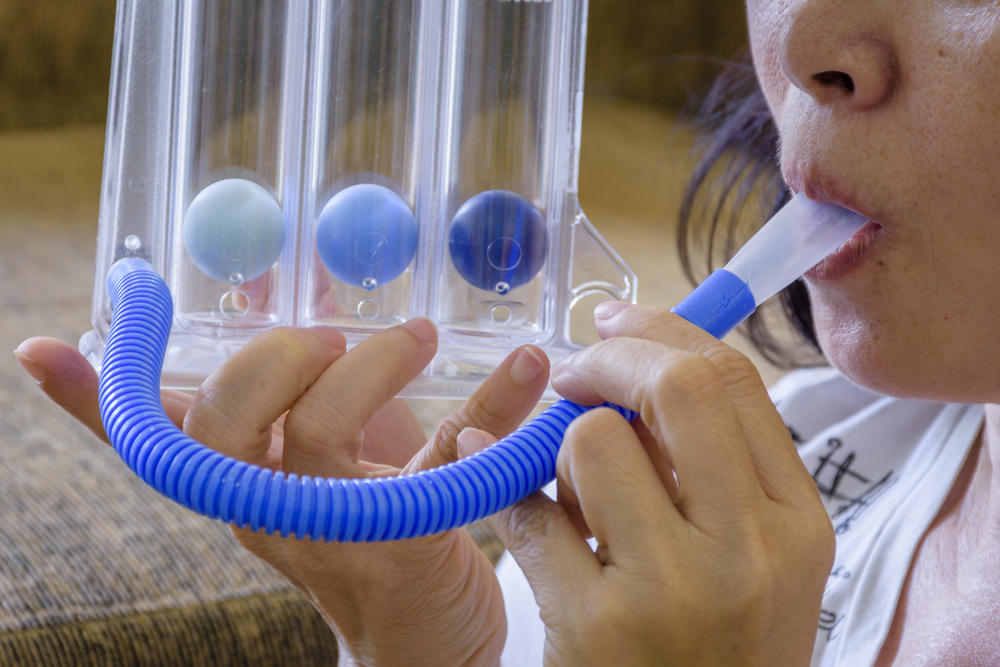Long-term RMET Found to Improve Patients’ Respiratory Endurance, Overall Health
Written by |

Long-term respiratory muscle endurance training (RMET) is a safe, feasible therapy that, in combination with conventional treatment, improves respiratory endurance and general well-being of people with mild to moderate myasthenia gravis.
The findings were reported in a study titled “Effects of long-term respiratory muscle endurance training on respiratory and functional outcomes in patients with Myasthenia gravis,” published in Respiratory Medicine.
Myasthenia gravis (MG) is an autoimmune disease caused by the abnormal production of antibodies against acetylcholine receptors necessary for muscle contraction. This leads to muscle weakness, lack of muscle endurance, and extreme fatigue.
In most cases of generalized MG, respiratory muscles also are affected. Patients might start to lose respiratory muscle strength and endurance, or experience shortness of breath (dyspnea) and shallow breathing.
“Improving respiratory muscle endurance might be a helpful tool to stabilize performance of respiratory muscles and thus avoid such severe complications,” researchers said.
Several studies demonstrated that respiratory muscle training can improve muscle strength and endurance in healthy individuals and those with neuromuscular disorders, including spinal cord injury, tetraplegia, multiple sclerosis, amyotrophic lateral sclerosis, Duchenne muscular dystrophy, and spinal muscular atrophy.
In 2007, scientists attempted for the first time to use a four-week RMET program in a group of MG patients. Despite improving respiratory endurance, the positive effects of this intensive training program were rapidly lost after a few months, suggesting that a long-term maintenance program might be required.
In this study, German researchers analyzed the effects of long-term RMET — one week of familiarization training, four weeks of intensive training (five 30-minute training sessions per week), and a maintenance training period of 12 months (five 30-minute training sessions over two weeks) — in a group of 18 mild to moderate MG patients and six healthy control subjects.
All underwent tests before and after the intensive training, and after 3-12 months of maintenance training. The tests assessed respiratory endurance, MG score, lung function and physical fitness. Participants were asked how they felt about their general physical fitness as well as their MG and respiratory symptoms compared to how they felt before starting the training program.
Of the 18 MG patients in the study, 12 completed the training program.
After 13 months of training, tests showed improvements in respiratory endurance (412% increase), MG score (0.67 at baseline versus 0.41, with lower scores corresponding to lower disease burden), and physical fitness (increase of 160%).
The patients’ lung function did not significantly change over the course of the training program.
Patients said they felt their MG symptoms, respiratory symptoms and physical fitness significantly improved (49%, 58% and 64%, respectively) compared to how they felt before starting the program.
No significant changes were found among healthy control subjects.
The study “demonstrated that long-term RMET exerted positive effects not only on the [respiratory endurance] but also directly on the manifestation of MG. Moreover, this study revealed that RMET over more than one year is safely feasible at home for patients with mild to moderate generalized MG and can be a beneficial therapeutic option in addition to the conventional drug treatment,” the researchers said.



Leave a comment
Fill in the required fields to post. Your email address will not be published.